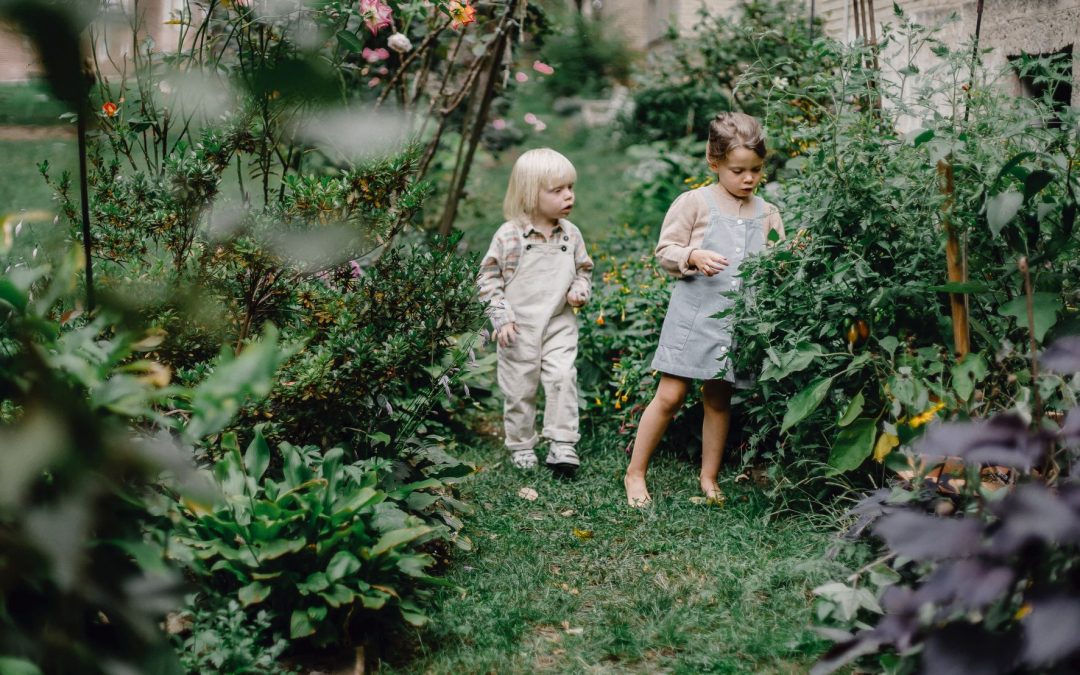A famous saying goes, “curiosity killed the cat.” And for the longest time, some parents have imposed this rule on their children without considering how it ended, “but satisfaction brought it back.” Here’s how Stories and Poems from a Grandmother’s Heart by Kishwar Mirza encourages curiosity in children.
Children are born with curiosity naturally etched in their little minds. As soon as they can move on their own, they immediately begin to explore their surroundings. From grabbing things and putting those in their mouths to climbing anything they can, children have an inherent need for exploring the unknown and discovering things.
For parents, this behavior can be overwhelming and not to mention worrying. Perhaps parents fear their children hurting themselves. They would rather have them fixated on their gadgets or the television than wandering around. And with the advancements in technology and the fascinating world of the internet, children don’t seem to mind sitting for hours with all their attention directed only to one object. After all, they can have all the opportunity to be inquisitive once they’re older. Most parents forget how critical it is to encourage curiosity in children, even if it means they get a few wounds because of it. In fact, according to the Association for Psychological Science, curiosity helps in academic success.
Parents’ Proactiveness in Supporting Children’s Curiosity
There are a lot of books that encourage children to tap into their curiosity. From The Curious Garden by Peter Brown to Stories and Poems from a Grandmother’s Heart by Kishwar Mirza and Winnie The Pooh, they all aim for children and the people around them to embrace this innate fondness for curiosity. These books demonstrate the benefits and fun of letting children wander around to learn independently. But, of course, literature alone isn’t enough. Children need other activities to help them recognize the beauty of curiosity. And here are a few ways parents can help nurture this.
Show Them the Beauty Outside
Whether in the yard or the nearest park, let children bask under the sun and enjoy what nature offers. Let them get sunburnt or dirty. There’s no better way for them to learn than by having the opportunity to explore. Some parents are not on-board letting their children grab that soil or follow after that butterfly. But remember, pain and dirt are momentary, but the knowledge and experience the child gains from this is lasting.
Go on a trip to the beach and let children frolic around and collect shells. Or go camping and allow them to help gather the wood for the campfire. Nature has a lot of wonders and wisdom to offer, not to mention it can also help parents relax after a long day at work. It’s a win-win situation.
Encourage Them Through Their Interests
Parents should observe what their children are interested in and utilize that to get them outside and excited. For instance, if they’re interested in movies, parents can drive them to places that might resemble the film they like. If they want music, encourage them to try an instrument. Children love animals, and can’t seem to get enough of them, so bring them to the zoo and let them learn personally. Children get excited to do activities that capture their interests, even if it’s something new.
Proactivity in Answering Questions
When children ask questions, parents are always tempted to tune their answers to anything more fantasy than factual. In some cases, this can help, especially if the concept is too “grown-up” for children to understand. But in other cases, this can be pretty unnecessary. Always answer children’s questions clearly, and according to the child’s development. And it’s also important to note that development is unique to every child. Hence, parents should encourage their children to share their answers before answering their questions. This can help them gauge what concepts their children can already grasp. Sometimes, parents downplay their children’s comprehension and assume they can’t understand simply because it’s what others experience.
Don’t Always Try to Answer
Parents can’t always have an answer to everything, and that is alright. In fact, that is the perfect opportunity to get the child to the library or to prompt them to ponder on their question. Books are their best friends to knowledge and whole new experiences. It’s without a doubt that children who are exposed to books earlier grow to be better readers and more inquisitive individuals. As usual, to let them enjoy the library, parents also need to tap into their interests. Let them acknowledge that not everything revolves around technology, and sometimes, there’s also fun in reading and searching for knowledge physically.
Unstructured Play
Dolls are for playing houses or pretend tea parties. Cars are for driving and racing. Some toys offer children no opportunity to tap into their creativeness and imagination. They exist with purposes that are limited to specific ways. Rather than always providing children with toys and entertainment like this, try giving them toys that can stimulate their imagination. Neutral objects like boxes, sands, and art materials are excellent means to let their curiosity and creativity guide them on how to play.
Encouraging curiosity in children doesn’t only benefit them in terms of learning. It can also help them be more appreciative of the world and be more confident in their choices in the future. Parents motivate them to self-determine and stand by their options as early as possible by allowing them to explore independently. And this is a great way to nurture stronger individuals.


Recent Comments